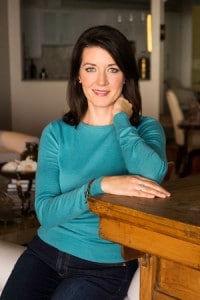
“It’s like you find this true light, which for me was writing, and then you lose that light, and then you have to go find that true light again. And in many ways, that was what happened to me.”
Ann Kidd Taylor grew up watching her mother, best-selling author Sue Monk Kidd, write from a room in their home–an experience she describes as “the most normal thing in the world” when you’re a child.
And yet for Taylor, it took some years and a struggle with fear and doubt before she decided to take up writing herself and return to what her mother called “her own true light.”
Here the author – who lives in Naples, Florida, with her husband, son and two dogs – talks about her first novel The Shark Club, what she learned after co-writing a memoir with her mother and probably most important of all, what it takes to “stay in the chair.”
Mindy Lucas: Welcome to Porch Talk. We’re excited that you’ll be making an appearance here this weekend at the Pat Conroy Literary Festival. I’d like to start with how you got into writing, whether your mother, the writer Sue Monk Kidd had something to do with that, as I suspect it did, and how you decided this was what you wanted to do.
Ann Kidd Taylor: I remember being very young in elementary school and really loving to write stories. I still remember an assignment I got in the second grade from Mrs. Seaborne who was one of my favorite teachers.
I loved stories, and I loved reading. I remember my childhood books on the shelf. One of my favorites was Julie of the Wolves and I loved Roald Dahl and some of those Little House on the Prairies. So I loved reading and I loved writing stories. And I used to write family newspaper stories exposing things like what was for dinner.
ML: (laughing) That’s funny.
AKT: I was very drawn to those things but of course, I did have a mother who was a writer who was writing in a room in our home, so this just felt like the most normal thing in the world. It was, ‘Oh people do write as a career. You can write in a room in your home. This is perfectly normal.’
I think that mom being a writer influenced me in that it helped me see what was possible for myself. So I think I came by it naturally, but I also had this wonderful role model for that.
Ironically – and I write a lot about this in Traveling with Pomegranates – I think the way my mom put it in one of her chapters was right. It’s like you find this true light, which for me was writing, and then you lose that light, and then you have to go find that true light again. And in many ways, that was what happened to me.
You know I grew up, I went to college, and I started to think where does this idea come from? But then I started to think, I can’t be a writer. This doesn’t seem practical, whereas when I was 8, 9, or 10 this was the norm.
So I started to have these doubts and fears. And I started to think I really needed to differentiate myself from my mom. I really needed to do something different, right? I couldn’t do the same thing that my mom did. I felt like I just had to go strike my own path, and it needed to look different, and if it didn’t what did that mean for me?
I had all of these questions. Deep down that was the true light inside of me, and so I think, in a way, I had to run wildly in the other direction and explore all of that, other options, in order for me to come back to it fully and having arrived at it own my own. So yeah, my life away from writing took a little detour.
ML: And you capture a lot of that feeling, that sense of restlessness, that life sometimes takes you on these different paths, in The Shark Club.
AKT: Well good. Thank you.
ML: What was the process like then to write that memoir, Traveling with Pomegranates, with your mother? I understand this was a time when you both were working through some things, some struggles that sometimes comes with life at that age – she in her 50s and you in your 20s.
AKT: I had taken a trip to Greece when I was in college that just kind of blew my world open in the best way. It really was life changing. And I write extensively about that trip in Traveling with Pomegranates. But after that we did a number of trips together.
So when I decided I wanted to write about my travels, I got about 100 pages in, and it was funny because I kept finding myself talking about “mom and I did this” and this is what we talked about, in the pages.
I was writing about these trips and she was on these trips, but it became very glaring to me that her voice really needed to be part of writing about these trips and our traveling together and what that meant, not just to us individually but to our relationship because the traveling that we did together transformed our relationship.
And I remember saying to her, ‘What do you think about writing this with me? I don’t know how that’s going to go or what it’s going to look like, but I feel like I’m telling half the story.’ And I was!
So when we set in writing it, because there are two voices in the book, we had to be very technical about how we were going to go about it. So we decided to do alternating chapters. We mapped out all the places we wanted to include, and who was going to take which place, and kind of based it on the experiences that we had there.
We wanted where we lived at home to be touchstones in these chapters as well.
So we had to make it manageable. Dividing the book into three parts helped. We also used the myth of Demeter and Persephone, the mother-daughter Greek goddesses as a structure for us. That’s where the pomegranates in the title come from.
So that’s the technical part of it. And as for how we did it, she would write in her house, and I would write in my house and we had these dates and little deadlines that we would make for ourselves so one of us wasn’t waiting on the other one.
But we’d get to a point, and we’d swap chapters, and we’d read, and we’d come together, and we’d talk, and we’d rewrite them.
ML: Do you think that practice of writing and rewriting and sharing helped set the stage for the writing of The Shark Club or what impact did that have on writing your first novel?
AKT: I think it had a huge impact. After writing Travelling with Pomegranates, I said, ‘Man that was the hardest thing I’ve ever done.’ And then after I’d finished Shark Club, I said, ‘That was the hardest thing I’d ever done.’
But it’s true that writing Traveling with Pomegranates definitely prepared me for the writing of The Shark Club, even though one is non-fiction and one is fiction. I learned so much about writing, about editing, about re-writing, about structure and just about the kind of internal drive it takes to stay in the chair and do the work.
ML: That’s a great phrase. ‘Stay in the chair.’
AKT: (Laughing/ sighing) It’s true. Because that’s what it comes down to. You have to do the work. You have to say no to a lot of things including housework, and whatever it is because this is your job, and you just have to completely give yourself over to it as much as you can.
Having said that, my son was very young at the time and I think that’s why it took so long as it did – to write the book – because I was a young mother, and I had this young baby, and I didn’t want to miss a thing. I wanted to do the field trips. And of course if your only hours are during pre-school, you only have half the morning and by the time you’ve dropped your son off and driven yourself home, you’ve got about 45 minutes to work before you have to get back.
So I tried to give everything I had to the book and everything I had to my son and my family and of course, you know, nothing ever works out perfectly. We just have to do the best we can.
ML: And so speaking of The Shark Club, you have several themes that you weave nicely together throughout the book. There is the idea of love and sort of the “one that got away” or couples who find themselves possibly rekindling love, second chances and all that. I personally really liked that those themes weren’t handled in such a sentimental fashion but more matter of factly.
Without giving away too much, when you were writing about your main characters, especially Maeve, did you know that’s how things would wind up for them, or did that unfold naturally?
AKT: The only thing I knew about how the book was going to end, was I wanted Maeve to be happy in the end, because she deserves that. I thought you know, she might end up with a romantic partner at the end of this book. She might not. But either way, I wanted her to be Ok.
And so I could remember thinking Maeve was going to have a fulfilled life. And that was important to me because, this was Maeve’s story and I don’t know how else to say this, but I wanted her to have happiness in her life, but that didn’t mean there would be a man in her life.
That kind of fulfillment from a partnership with someone is an incredibly enriching part of life. I wanted Maeve to be Ok with or without it. And without giving away who she does end up with in the book, I’m glad she has this part of her life, but she would have been Ok too.
I constantly kept seeing her as this modern, fully formed woman, comfortable in her bones. And she really wanted everything. I mean, gosh, don’t we all?
I think this is the reason there are so many love stories in The Shark Club. Ultimately, I think of The Shark Club as a love story. It’s a love story between Maeve and little six-year-old Hazel whom she encounters, and it’s a love story between her grandmother who raised her, and it’s a love story between Maeve and her sharks and Maeve and these two men in her life. So it’s definitely a love story in many, many ways.
So no I didn’t know how it was going to end and that’s a very long answer. (laughing) But she was going to be happy. That’s all I knew.
ML: You also employ fate or fateful encounters throughout the book. First, you have the episode involving how Maeve finds what appears to be her true love on the same day as her life’s calling. Then later you have another fateful encounter with Maeve running into Hazel, the daughter of her long ago true love Daniel. Are you interested in coincidences and fateful encounters in fiction and in real life as well?
AKT: I don’t know if that’s true, but certainly when it comes to storytelling, it interests me. Because life is always more interesting in a book.
We have to have these storytelling elements to make the story rich and interesting. Sometimes I might see something in a movie, and my husband might say, ‘Well that couldn’t happen in real life.’ And I will say, ‘Well, exactly.’ Because that’s what storytelling is about. Of course, you always want to make it plausible.
I’m intrigued by synchronicities in life very much and that sort of thing. From a writer’s perspective, I love the idea of this intersection of Maeve being bitten by the thing that she would grow to love, and also have this first experience with love – the intersection of that and the power that had in her life and the way it transformed her. It was like this explosion went off. But later when Maeve encounters Hazel on the beach, I just thought what would really unravel her right now?
One of the best pieces of writing advice my mom ever gave me, and I’ve heard her talk about this when she’s been out talking to readers, is she likes to take a bad thing and make it worse. And so there’s something about that, when it comes to this relationship with Maeve and Hazel and again without giving too much away, I thought, ‘How can you make that worse? Oh, you make her Daniel’s daughter.’
So it was really fun to play around with that.
ML: Speaking of Hazel, I enjoyed seeing how fully developed her character was. In many stories, it seems like children are not given their own sense of self especially in plots that involve romance or romantic tension. They’re almost used as a device or a prop and yet with Hazel, I could really see this child and hear her laughing. Did you at some point realize there’s a lot going on here with this kid?
AKT: In a way Hazel was a surprise to me. As I was really thinking through and planning the novel and pulling things together, Hazel became much more a part of it than I anticipated.
I knew there was going to be a Hazel at some point, and I knew who I wanted her to be and that this would create a lot of sadness and tension. But I did not expect it in the beginning. Once she got on the page, I had something different going. (laughing) But I didn’t expect for Maeve and Hazel to have this really tender, special relationship. That was a surprise to me. It was a surprise that the direction it took just kind of naturally unfolded that way because Hazel seemed to insist on it.
ML: You certainly get that sense. Maeve’s anguish in what is happening with her and Daniel seems just as significant as the impact it might be having on Hazel. This is a much more sophisticated theme, I feel like than what you see in, books that I guess are “Beach Reads.”
AKT: Yeah, I think that as you see Maeve’s concern and love for this child grow, and watching Maeve’s own process, where she understands I can’t stay with a person just because I want to be this child’s mother. And she realizes, she also doesn’t want to hurt this child. I think it touched on some really complicated things. It went to the deepest things in Maeve. She wanted a family. She wanted to be a mother. She wanted love in her life. And it’s like she’s got it, but does she?
But I have to tell you that, maybe one reason that Hazel was so talkative on the page, was that she talked in my head. She is my son at that age really. I gave Hazel a lot of Ben’s characteristics when he was that age.
ML: I love that.
AKT: His love of sea creatures and that Nigel Marven Swimming with Monsters DVD that she loves – I’ve seen this a million times.
But Hazel has this no holds barred curiosity about the world, and animals, and the ocean and creatures and she is fully living in that wonderful way that children do. I watched my son do this and it was infectious.
It not only made me just love him more and more, it made me love life. I think being his mother, kind of witnessing another human just look at the world with very wide hopeful eyes, just rekindled something inside of myself. My relationship to nature and the world and then of course it’s like, oh man and I get to be his mom too. Writing Hazel felt very natural, because I was just channeling the things my son said or the things we did together. So he was a huge inspiration to me.
ML: The issue of how sharks have been demonized by society and our perception of them really comes through in your book and in a lot of ways, the sharks, the beauty in their species, how they swim and how the shark Sylvia seems to check Maeve out with curiosity in the opening chapter is magical. Tell me about how your knowledge and interest for that evolved? Did that come from watching the Swimming with Monsters DVD a million times?
AKT: (laughing) In a way, yes. I was watching a lot of nature documentaries with my son, and he really loved sea creatures and prehistoric sea creatures and stuff. So a couple of things happened as I was thinking about what the book was going to be about and who is Maeve and who is this character because this character just appeared in my head and I didn’t know anything about her.
So one of the first things that happened was, I had taken my son to kindergarten and I had heard Dr. Sylvia Earle, the oceanographer, on the radio. It was an interview and she was just talking about the oceans in a way I had never heard anyone talk about the oceans. And she talked about it in this incredibly intimate and poetic way that she intermingled with the science of it too. I was just kind of riveted by that.
She described this experience of watching an octopus from her submersible and how this submersible and the octopus on the other side of the window was falling, falling, going deeper and deeper into the ocean. And they just watched each other. And there was something so incredibly beautiful about that to me.
I thought, ‘Oh wow, I think I know who Maeve is. I think she is a woman who belongs in the water.’ And then, the plight of sharks and especially shark finning, really got on my radar when I stumbled upon a documentary about shark finning. I was so horrified by it. I think Marco, the character of Marco says it in the book, it takes a special kind of mean to cut the fin off a live shark and throw it back into the water.
I was so deeply sad and outraged. So I think some things started coming together for me about the same time that I thought Maeve belonged in the water and this was who she was and she loved sharks and then I ‘took something bad and made it worse.’ I thought, something bad happens to the sharks she loves. Oh finning. So it just kind of evolved from those two pivotal things as I was forming ideas about the book.
ML: Speaking of your interest in nature, history and the outdoors, I think you’ll be right at home here in Beaufort.
AKT: I will!
ML: Have you been here before and do you have a Conroy story?
AKT: I have been to Beaufort but it has been years. It’s been too long, so I’m excited about getting back.
I don’t have a direct Pat Conroy story, but peripherally, I can tell you that one of my memories about him is when my mom published The Secret Life of Bees, he wrote the sweetest letter that she still has. And it meant so much to her.
I remember that and just how really thoughtful that was, so you know this is special for me to get to come and participate in this event. It really is. And I can’t wait to see Beaufort again.
ML: Ann, thank you again for joining us for Porch Talk. We looking forward to having you here.
About Mindy Lucas
 As a reporter for the State, Island Packet, and Beaufort Gazette newspapers, Mindy Lucas covered book news and literary events such as the South Carolina Book Festival and Columbia’s One Book, One Community city-wide “big read.” She also interviewed writers including Larry McMurtry, Ron Rash, Mary Alice Monroe, Ellen Malphrus, James E. McTeer II, and of course, Pat Conroy. Prior to her newspaper career, Mindy was a freelance journalist for publications around the southeast and an advertising copywriter. She is now a content strategist for a Columbia-based marketing communications firm and lives with her husband David and their cat Earl in Beaufort, South Carolina, just a bicycle ride away from the Pat Conroy Literary Center.
As a reporter for the State, Island Packet, and Beaufort Gazette newspapers, Mindy Lucas covered book news and literary events such as the South Carolina Book Festival and Columbia’s One Book, One Community city-wide “big read.” She also interviewed writers including Larry McMurtry, Ron Rash, Mary Alice Monroe, Ellen Malphrus, James E. McTeer II, and of course, Pat Conroy. Prior to her newspaper career, Mindy was a freelance journalist for publications around the southeast and an advertising copywriter. She is now a content strategist for a Columbia-based marketing communications firm and lives with her husband David and their cat Earl in Beaufort, South Carolina, just a bicycle ride away from the Pat Conroy Literary Center.


Leave A Comment